"We need to design for the different futures that can unfold" says panel at NeoCon in Chicago
Designers must be flexible and willing to adapt to the unknown, says ROOM co-founder Morten Meisner-Jensen during a talk at the brand's showroom in Chicago during NeoCon.
Moderated by Dezeen's US editor Ben Dreith, the talk was held to discuss how fluidity in workspace design can create dynamic offices that promote collaboration and creativity.
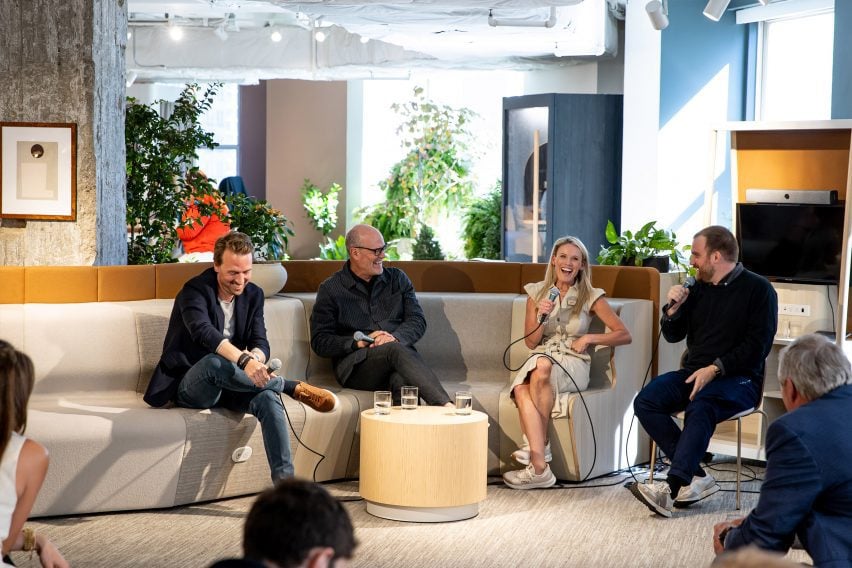
Titled Hard Work Soft Office, the panel featured Graham Design founder and creative director Brian Graham and Molly Prior, senior vice president of customer experience at furniture manufacturer OFS.
When discussing the meaning of a "soft" office, Graham pointed out that multiple factors go into that description.
"There's an aesthetic softness, there's a tactile, real softness, and then maybe there is a softness in culture," he explained.
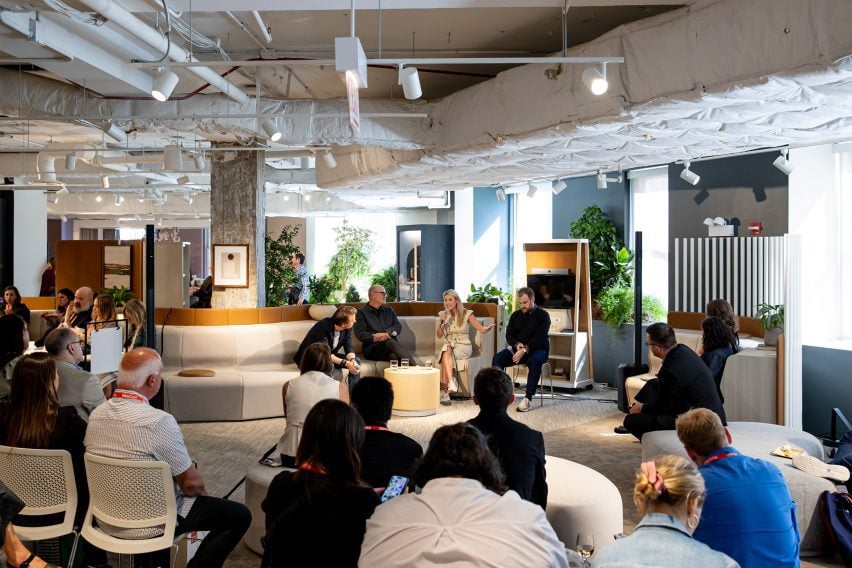
Meisner-Jensen added that adaptability is key to accommodating shifting office culture.
"In the past four years… if there is one thing that we know for sure, it's that trying to predict the future is absolutely impossible," he said. "Flexibility to me is really about the ability to adapt."
"We need to design for the many different futures that can unfold," he continued. "It's a little bit like the survival of the species."
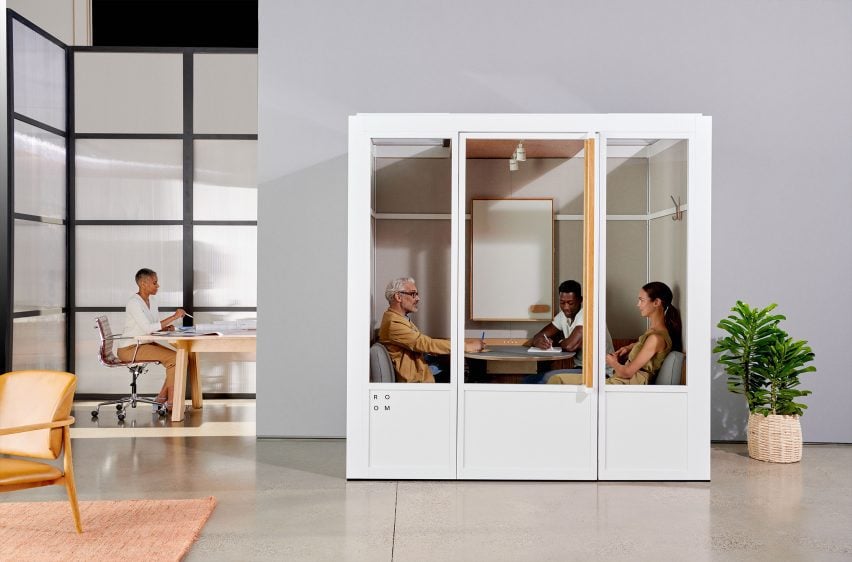
Addressing the role that technology plays in creating flexible workspaces, Meisner-Jensen noted that data can only go so far if the office was originally designed with a rigid interior layout.
"All the data in the world can't help you if you can't move the walls that you have set up," he said.
"There's so much technology out there today and even more after Covid… but it's only recently that we have the tools to actually modify the physical space," he explained.
"It has to be a mix of data and insights and also the ability to actually act on it."
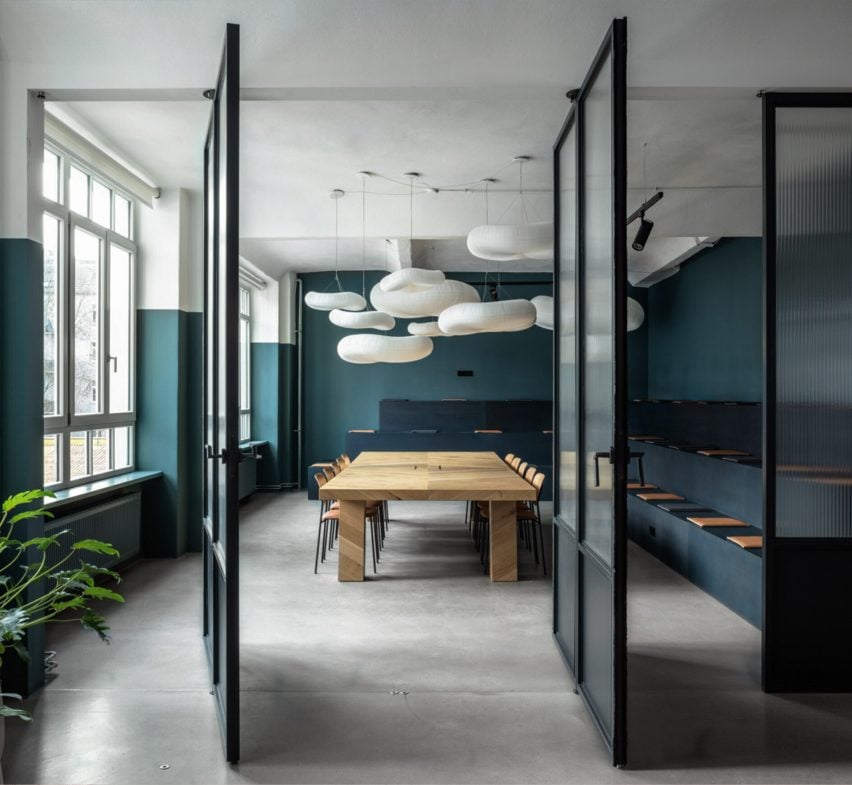
Prior added that even before the pandemic, the workspace was changing and becoming more adaptable.
"We started to learn how important flexibility and choice were," she said.
Graham, whose San Francisco-based design studio Graham Design specialises in contemporary furniture, added that designing for adaptable workspaces also means keeping circularity in mind.
"Our responsibility today is to build things that, 50 years from now, will still be viable, still functional, still relevant," he said.
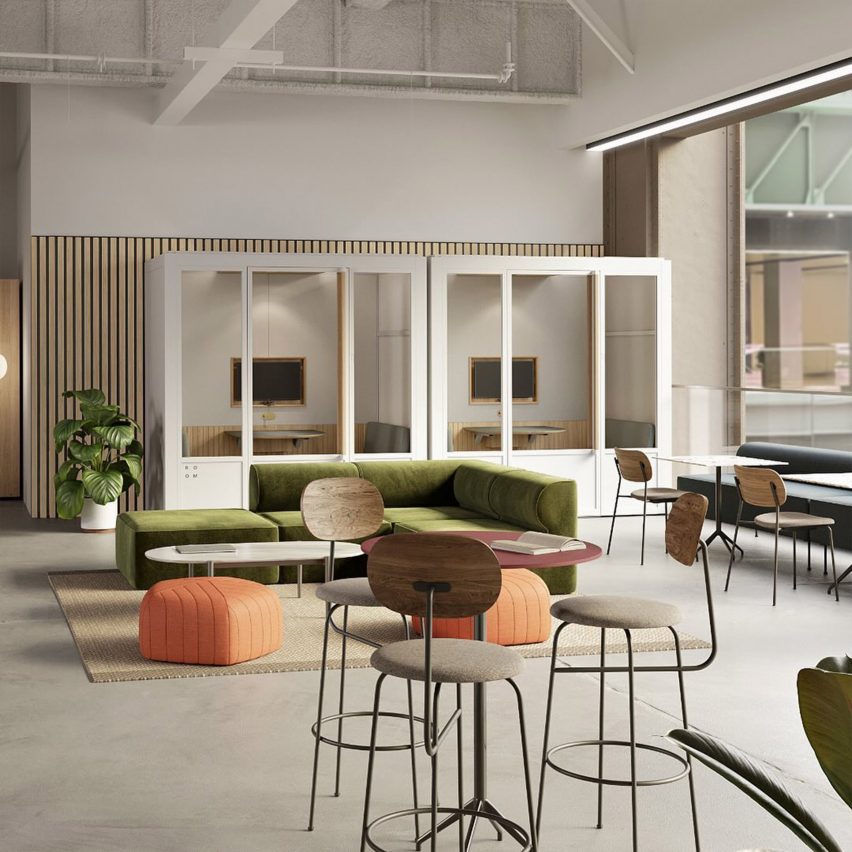
Prior added that designing modular office furniture can mean that components can be replaced, as opposed to entire units.
However, she added that the buck stops with the end user, who must ultimately decide what to do with the furniture that they have purchased.
"At some point there is a handoff," she explained.
"To move the needle we have to continue to push the conversation and educate our customers. Our whole world has to change."
ROOM is a modular furniture brand that provides customisable workspaces such as soundproof office pods and phone booths.
The photography is by Jordan Moya.
Partnership content
This video was produced by Dezeen as part of a partnership with ROOM. Find out more about Dezeen partnership content here.